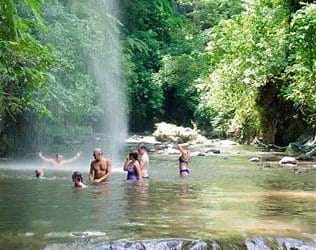Ready to add a new activity as part of your morning habits? Have you ever heard about scraping your tongue?
I invite you every morning, before brushing your teeth and before breakfast, to use a tongue scraper or a spoon (don’t use this spoon for anything else from now on) and gently scrape your tongue from back to front. Try to scrape the entire width gently but firmly.
Why are we doing this? We are looking for ama, a Sanskrit word that translates as “unripe,” “uncooked,” “raw,” or “undigested.” Ama is a form of unmetabolized residue, and evidence of its presence can be seen on the tongue.
The formation of small amounts of ama is normal, but when it is not cleaned and removed regularly, ama becomes a big problem, or in other words “the cause of all disease.”
Ama looks like a sticky white coating on the tongue and can smell like yesterday’s food. By cleaning your tongue every day in this way, you may be able to learn more about yourself and your digestive process. This part of this mission is also to raise awareness.
Ama signs and symptoms
- Channel obstruction — pre-nasal sinus congestion, lymphatic congestion, constipation, etc.
- Fatigue, heaviness, cloudy brain
- Abnormal flow of vata (one of the doshas according to Ayurvedic medicine), such as heartburn or diarrhea
- Stagnation
- Abnormal or dull taste, lack of appetite
- Sexual weakness
- Feeling of being dirty, impure
Causes of ama
- Poor diet
- Stress
- Inadequate sleep
- Lack of a routine
- Excessive, inappropriate or lack of exercise
- Irregular eating habits
- Sleeping or eating before digesting food
- Sleep during the day (for some constitutions)
- Unresolved emotions
So the challenge is to clean your tongue after you wake up in the morning and see what comes out.
Keep doing this so you can notice when you haven’t digested food properly, when you have bad breath and when your tongue has more ama than usual. Considerations: Did you eat a heavy meal the day before? Did you eat a lot of meat? Do you have indigestion?
This is how you begin to pay attention to the signals your body is giving you, so that you can make the appropriate changes to create balance in your body.Ready for a New Morning Habit?
See this article in the magazine (click photo):






